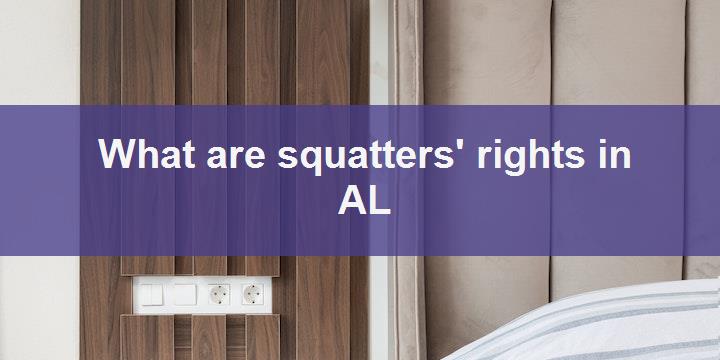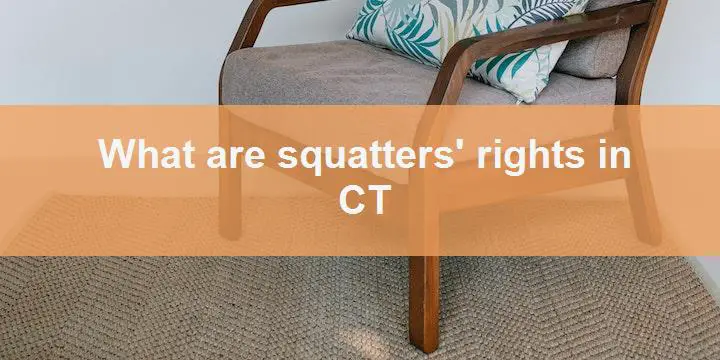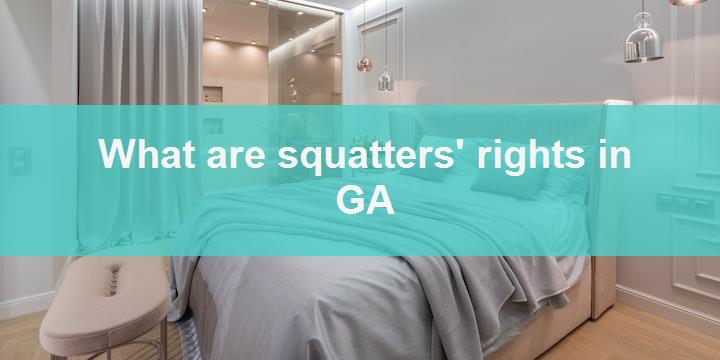What are squatters’ rights in Alabama?
Squatters’ rights in Alabama are a complex subject, with several key considerations to keep in mind. Firstly, it’s important to note that squatting is not legal in Alabama, and property owners have the right to evict trespassers from their land. However, there are some exceptions to this rule, such as adverse possession, which allows squatters to claim ownership of a property after a certain period of time. Additionally, tenants who have been living on a property for an extended period may be entitled to extra legal protections, such as the right to a notice of eviction or the ability to contest an eviction in court. Overall, it’s important to consult with a legal professional to fully understand the intricacies of Alabama’s squatters’ rights laws.
What is the squatting/squatter?
Firstly, it’s important to understand that squatting refers to the act of occupying an abandoned, unoccupied or unused property without the owner’s permission. Squatters are people who live in abandoned or unoccupied properties, whether that’s a house, apartment, or other type of building. Squatting is often used as a last resort for people who cannot afford to pay rent or housing expenses. For example, a squatter might take over a vacant house to provide themselves with shelter. However, squatting is often illegal and can result in legal consequences for the squatter.
What is Adverse posession in Alabama?
Adverse possession is a legal concept that refers to the acquisition of property through continuous and hostile possession of another person’s land. In Alabama, adverse possession is recognized by law, but there are certain requirements that must be met for it to be successful. Firstly, the party seeking adverse possession must possess the property for a continuous period of at least 10 years. Additionally, the possession must be open, notorious, and exclusive, meaning that it should be obvious to a reasonable person that the property is being used by someone else. It is also necessary for the possessor to pay taxes on the property during the 10-year period. In Alabama, adverse possession can be a complicated process, so it is important to consult with an experienced attorney if you are considering it.
Is it legal to squat in Alabama?
Firstly, one may wonder if squatting is legal in Alabama. However, according to state law, squatting is considered illegal. Additionally, individuals who trespass on private property without permission may face criminal charges. Moreover, landlords have the right to evict any individual who is occupying their property without their consent. Nevertheless, some individuals may still choose to squat as a last resort. As a result, landlords in Alabama are advised to take legal action against squatters promptly to prevent prolonged occupation of their property.
Can police remove squatters in Alabama?
Yes, police can remove squatters in Alabama. As a matter of fact, the state has a specific law that allows them to do so. First and foremost, property owners must serve a written notice to the squatters informing them of their intent to remove them. Following that, the local law enforcement authorities will step in to carry out the eviction process. However, this does not necessarily mean that the squatters will be arrested. In many cases, if they have been occupying the property for a considerable duration of time, they may be entitled to certain rights that protect them from immediate eviction. Nonetheless, if the property owners follow the right steps and go through the legal process, the squatters can be removed from the premises in Alabama.
How to evict squatter in Alabama?
First and foremost, it is important to understand the laws surrounding the eviction of a squatter in Alabama.
Secondly, provide the squatter with a written notice that he or she is illegally occupying the property. Furthermore, if the squatter refuses to leave, file a lawsuit against them in court. In addition, attend the hearing and provide evidence to support your claim that the squatter is trespassing on private property. Moreover, the court may issue a writ of possession, which allows you to physically evict the squatter with the help of a sheriff or police officer.
Lastly, change the locks to prevent the squatter from returning to the property.
FAQ
Q: What are squatters’ rights in Alabama?
A: Squatters’ rights are legal protections meant to provide some measure of security to individuals who occupy land or property that they do not own, but have been using or living on for an extended period of time. In Alabama, these rights are outlined in the state’s adverse possession laws.
Q: How long does someone need to occupy land or property to claim squatters’ rights in Alabama?
A: In Alabama, a person must occupy and use a property for at least ten years before they can claim adverse possession rights. During this time, the person must demonstrate that they are using the property continuously, openly, and without permission from the actual owner.
Q: What kinds of properties can be subject to squatters’ rights in Alabama?
A: Squatters’ rights apply to all types of property in Alabama, including residential homes, commercial buildings, and undeveloped land.
Q: Are there any specific steps squatters need to take in order to claim adverse possession rights in Alabama?
A: Yes, squatters must meet certain criteria in Alabama to claim adverse possession, including continuous use of the property, an intention to occupy the property permanently, and that the use of the property is not a secret. Additionally, they must pay property taxes on the property for at least ten years before they can claim adverse possession.
Q: Can a property owner challenge a squatter’s claim to adverse possession in Alabama?
A: Yes, property owners in Alabama have the right to challenge a squatter’s claim to adverse possession. They can do this by filing a lawsuit to evict the squatter or by showing evidence that the squatter did not satisfy the legal requirements for adverse possession.
Q: What happens if a squatter is successful in claiming adverse possession in Alabama?
A: If a squatter successfully claims adverse possession, they can take ownership of the property, and the original property owner will lose their right to use or occupy the land. It is important to note that this can have serious financial and legal implications, so property owners should always monitor their properties and take action if they suspect that someone is squatting on their land.
Also Reading
Better know before moving to Utah
What are the Landlord Tenant Rights in New Hampshire?
Bath average rent




